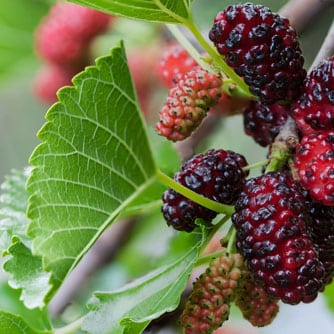A staple remedy of folk medicine, mulberry leaf extract is found to contain the compound 1-deoxynojirimycin (DNJ) – found to inhibit the activity of the enzyme involved in carbohydrate digestion. Hye In Chung, from Ewha Womans University (South Korea), and colleagues enrolled 50 healthy men and women, each of whom was randomly assigned to one of five groups: four groups received a maltose powder drink containing 0, 1.25, 2.5, or 5 grams of mulberry leaf extract; the fifth group drank a beverage with 5 grams of the extract 30 minutes before consuming the maltose solution. The team observed that both the 2.5 and 5 gram mulberry doses lowered glucose levels. .No difference between pre- and simultaneous ingestion of mulberry extract and maltose was detected. The study authors submit that: “The ingestion of [mulberry leaf extract] resulted in improved postprandial glycemic control in healthy subjects.”
Mulberry Compound May Modulate Blood Sugar
Hye In Chung, Joohee Kim, Ji Yeon Kim, Oran Kwon. “Acute intake of mulberry leaf aqueous extract affects postprandial glucose response after maltose loading: Randomized double-blind placebo-controlled pilot study.” Journal of Functional Foods, Volume 5, Issue 3, July 2013, Pages 1502-1506.
RELATED ARTICLES




